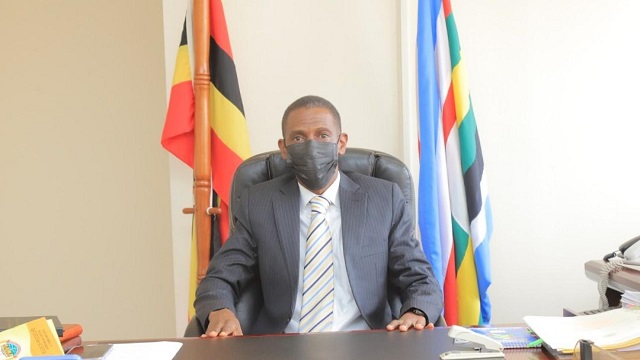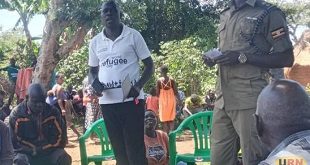
Kampala, Uganda | THE INDEPENDENT | Attorney General Kiryowa Kiwanuka says that government is still discussing the proposed ban of bail application for capital offence suspects.
The ban is being pushed by President Yoweri Museveni who has in the past months criticized the granting of bail to persons accused of capital offences pending determination of their cases.
While addressing journalists under the Uganda Parliamentary Press Association-UPPA, Attorney General Kiwanuka said that discussions were still going on and declined to divulge details on the matter.
Kiwanuka was in the company of the Government Chief Whip, Thomas Tayebwa and the Minister of Energy Ruth Nankabirwa.
Tayebwa appealed to the public to desist from the campaigning against the proposed Bill saying that it is meant to benefit all Ugandans and not selective for a particular group of people. He equally said that when government is ready to present to the bill, it will.
Recent media reports indicated that Cabinet ministers had approved criminal justice reforms, among them amendments to the 1995 Constitution and the Police Act, to deny suspects on capital offences bail or police bond. Some of the targeted suspects are those for rape, murder, robbery and treason.
The amendment is proposed to Article 23(6) (b) of the Constitution to provide that a person accused of committing an offence triable by both the High Court and subordinate courts, shall not be granted bail until after 180 days or trial commencement, or when the Director of Public Prosecutions (DPP) discontinues proceedings.
Also proposed is an amendment to Article 23 (4) (b) and Section 25 of the Police Act, which requires a suspect to be released on police bond if not charged in court within 48 hours, to qualify the period as “forty-eight business hours”.
Last month, President Museveni clashed with the Chief Justice Alphonse Owiny Dollo on the issue of granting bail to persons accused of capital offences pending determination of their cases. The Chief Justice said bail is a constitutional right which is supposed to be either granted or denied upon the discretion of the presiding judicial officer who should also exercise that discretion judiciously.
Owiny-Dollo said a judicial officer cannot wake up from the good or wrong side of the bed and decide whether to grant or deny bail to an accused person, but by considering a number of circumstances for instance, if one will abscond from trial or not.
The Chief Justice added however that he had heard President Museveni on a number of occasions having a different view on the right to bail application, saying that the judicial officers should remember the oath they took to dispense justice without fear or favour and independently.
But Museveni said that the concept of dispensing justice has to be harmonized, challenging the judicial officers to go and read the Constitutional Commission proceedings where he says the majority of the people of Uganda didn’t want bail for capital offenses. But the Commission headed by former Chief Justice Benjamin Odoki left it to the discretion of the judicial officers, which the president is opposed to.
According to Museveni who spoke in a tough manner on the matter, granting bail is a provocation which will not be accepted. He gave examples of people who were killed by mob justice in Arua and in Gomba, saying that when courts give bail on capital offenses, societies become hopeless and start killing people who are charged with such crimes.
The President has severally in the past criticized the granting of bail insisting that bail is not a constitutional right.
*****
URN
 The Independent Uganda: You get the Truth we Pay the Price
The Independent Uganda: You get the Truth we Pay the Price



